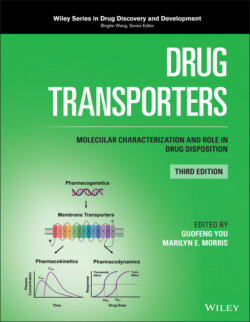Читать книгу Drug Transporters - Группа авторов - Страница 109
3.7.3 Cisplatin Toxicity
ОглавлениеCisplatin is a cancer therapeutic known to cause ototoxicity and nephrotoxicity in patients. A study in Canada enrolled patients (n = 206; predominantly Caucasian) receiving cisplatin and radiation for locally advanced head and neck squamous cell carcinoma and prospectively assessed for ototoxicity (defined as grade 2 or above from baseline, CTCAE v4.02) [124]. Pharmacogenetics of various transporters, including SLC47A1/MATE1, were assessed as covariates. Protective factors for ototoxicity risk were weekly vs. high‐dose cisplatin and SLC47A1/MATE1 (rs2289669) A/A carriers. Survival outcomes were not found to be statistically or clinically impacted by genetic variation in SLC47A1. A study in Chinese non‐small‐cell lung cancer patients (n = 403) also evaluated transporter genotype and toxicity response to platinum chemotherapy (83% cisplatin, 17% carboplatin) [125]. The SLC22A2 variant (rs316019; 808 G > T) was associated with hepatotoxicity and hematological toxicity. By comparison, SLC47A1 (rs2289669) was associated with hematological toxicity. Notably, the study did not appear to assess for renal toxicities secondary to platinum compounds.
While serum creatinine has been a traditional biomarker for kidney injury, limitations have garnered interest in urinary proteins that are secreted from anatomic locations in the nephron and can represent sites of injury to drugs and toxins. A recent study evaluated pharmacogenetics of transport pathways in cisplatin‐treated patients (n = 57) and traditional and novel biomarkers of acute kidney injury [99]. Notably, increases in urinary biomarkers were associated with polymorphisms in SLC22A2 and SLC47A1. The SLC47A1 variant (rs2289669) was significantly associated with an increase in the urinary biomarkers KIM‐1 (3.6‐fold) and MCP‐1 (2.9‐fold). In this publication, the decreased function of SLC47A1 associated with elevations in some urinary biomarkers in patients prescribed cisplatin. The results suggest that several transport polymorphisms (and phenotypes) may be implicated in cisplatin nephrotoxicity.
